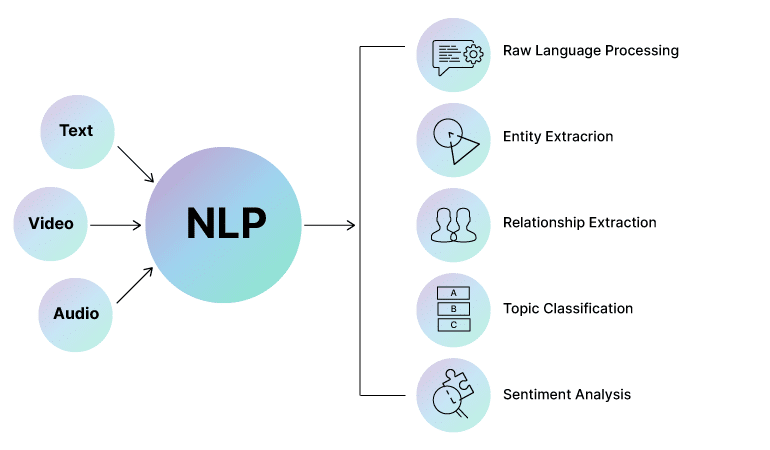NLP for medical records
Automating Data Extraction for Improved Healthcare Efficiency
Leveraging NLP for Efficient Medical Record Management and Data Insights
Natural Language Processing (NLP) for medical records leverages AI to extract and interpret unstructured data from clinical texts, such as physician notes, discharge summaries, and lab reports. By converting this free-text data into structured information, NLP improves the accuracy, accessibility, and efficiency of medical record management. It allows healthcare professionals to quickly retrieve relevant information, enhance decision-making, and streamline administrative tasks. NLP-powered systems also support better patient care by identifying key insights and trends in medical data.
Information Extraction (IE)
- Description: Information Extraction focuses on automatically identifying and extracting relevant data from unstructured text in medical records. This includes extracting key entities such as patient names, diagnoses, medications, and procedures from clinical notes.
- Applications: Used for creating structured data from electronic health records (EHRs), identifying adverse drug reactions, and compiling medical history for patient care.
Sentiment Analysis
- Description: Sentiment Analysis analyzes the tone and context of medical texts to assess the emotional or psychological state of patients. It can identify signs of distress, depression, or anxiety within clinical documentation.
- Applications: Applied in mental health assessments, evaluating patient feedback, and identifying concerns in patient-provider interactions that may require further attention.
Key Approaches to NLP for Medical Records
"Extracting Data and Analyzing Sentiments for Enhanced Care"
Natural Language Processing (NLP) for medical records is revolutionizing how healthcare professionals interact with patient data.
By converting unstructured text—such as physician notes, lab results, and discharge summaries—into structured, actionable insights, NLP streamlines medical record management. One key application is Information Extraction (IE), where NLP algorithms automatically extract critical data like diagnoses, medications, and procedures, improving the accuracy and accessibility of medical records. This enhances decision-making, reduces administrative workload, and accelerates clinical workflows. Another important NLP application is Sentiment Analysis, which examines the tone and context of medical documentation to detect signs of patient distress, mental health concerns, or dissatisfaction with care. By understanding patient emotions and concerns, healthcare providers can tailor interventions more effectively. Together, these NLP applications improve patient care by providing timely, relevant information, reducing the risk of human error, and enabling healthcare systems to better serve patients with personalized and proactive treatment strategies.

Outcomes of NLP for Medical records
"Enhanced Accuracy, Efficiency, and Patient-Centered Care"
Improved Accuracy and Data Retrieval
NLP for medical records significantly enhances the accuracy of data extraction from unstructured clinical texts. By automatically identifying key information such as diagnoses, medications, and lab results, NLP reduces human error and inconsistencies in data entry. This allows healthcare providers to quickly retrieve accurate, structured data, improving clinical decision-making. Accurate data retrieval also supports better reporting and analytics, enabling healthcare organizations to maintain up-to-date patient records and facilitate high-quality, evidence-based care.
Streamlined Administrative Processes
NLP reduces the administrative burden by automating tasks like medical coding, data entry, and documentation. By processing large volumes of unstructured text, NLP systems can extract pertinent information and generate structured summaries or reports, freeing up healthcare professionals from time-consuming paperwork. This leads to increased efficiency in medical record management, allowing clinicians to focus more on patient care. Additionally, NLP supports the smooth integration of medical records across systems, enhancing interoperability and coordination within healthcare settings.
Take the First Step Towards AI Excellence – Reach Out Now!